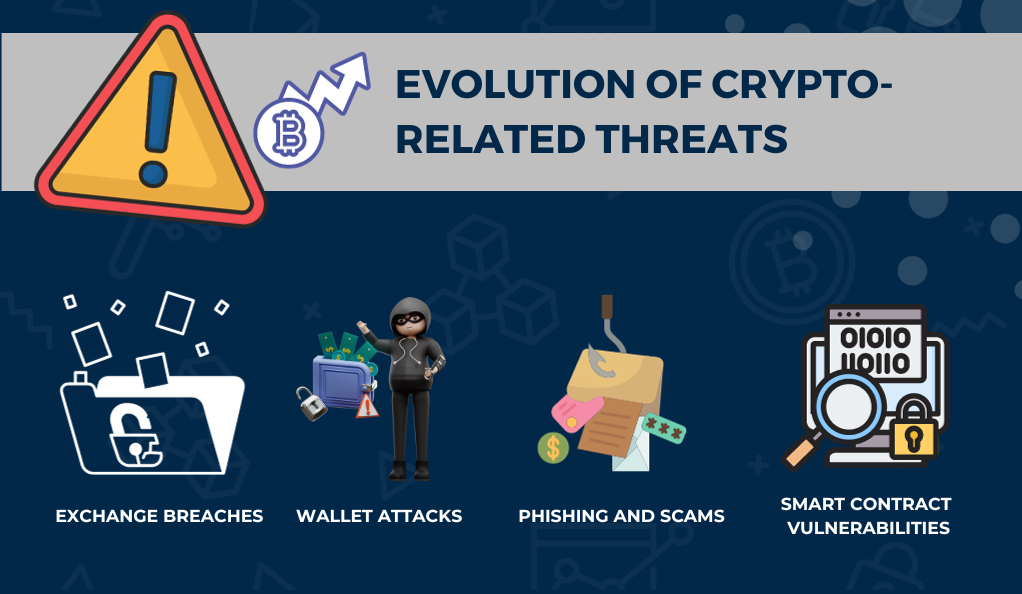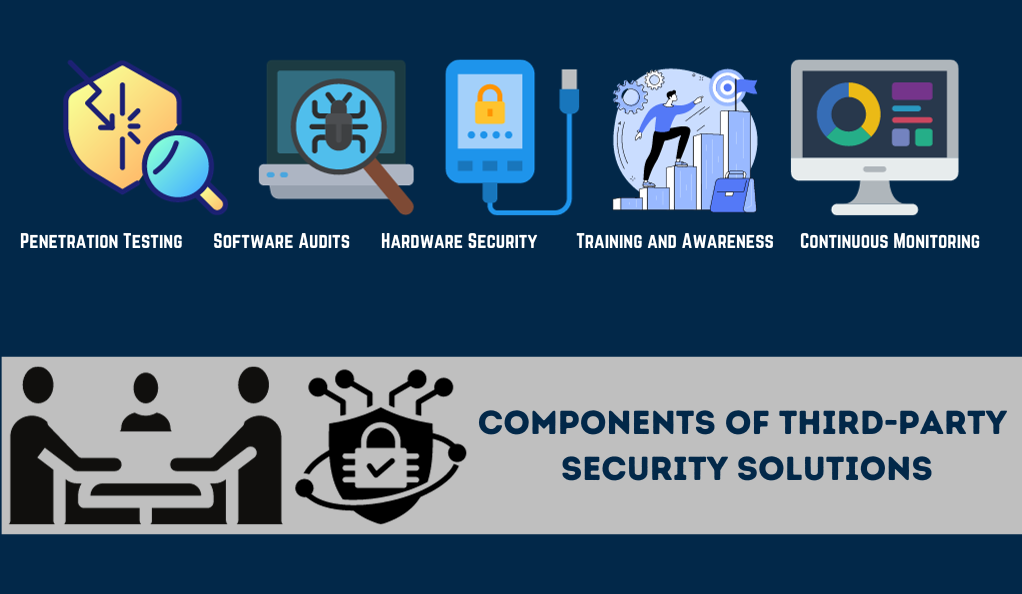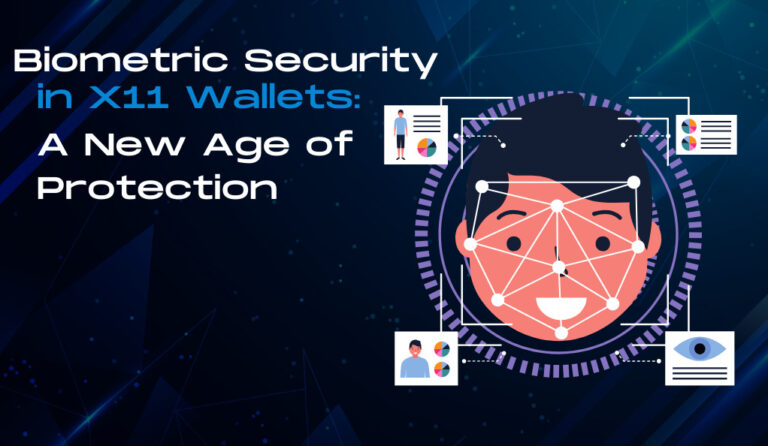Cryptocurrencies, digital or virtual currencies that use cryptography for security, have undoubtedly become a notable force in the financial sector. Since the inception of Bitcoin in 2009 by the mysterious figure known as Satoshi Nakamoto, the world has seen an explosion in the number and variety of cryptocurrencies. But as with any innovative technology, the higher its adoption, the more significant its vulnerabilities can become.
Blockchain: The Backbone of Cryptocurrencies
At the heart of most cryptocurrencies lies the revolutionary technology called blockchain. It’s a distributed ledger system where transactions are recorded in “blocks” and then linked and secured using cryptography. The decentralized nature of blockchain technology ensures that no single entity has complete control, and every transaction is transparent and verifiable by all users. This inherent decentralization was initially perceived as a solid security feature against conventional hacking attempts.
The Growing Need for Enhanced Security
The rise of cryptocurrency has been meteoric, creating vast opportunities for both legitimate businesses and nefarious actors. With the increased visibility and mainstream adoption of cryptocurrencies, the stakes have never been higher. Hackers, seeing the potential rewards, have intensified their efforts to penetrate crypto systems.
Evolution of Crypto-Related Threats
While the core blockchain technology remains remarkably secure, auxiliary components of the cryptocurrency ecosystem have proven more vulnerable. Over the years, there have been several high-profile hacks, scams, and cases of fraud that shook investor confidence.

- Exchange Breaches: One of the most common targets for hackers. Because exchanges hold vast amounts of cryptocurrencies for numerous clients, they represent lucrative targets. History reminds us of incidents like the Mt. Gox breach, where almost 740,000 bitcoins were stolen, causing a massive setback for the crypto community.
- Wallet Attacks: Individual cryptocurrency wallets, especially those connected to the internet, are susceptible. There have been instances where vulnerabilities in wallet software or users being tricked into revealing their private keys led to significant losses.
- Phishing and Scams: These involve tricking individuals into sending cryptocurrency or revealing their private keys through deceptive websites, emails, or apps that imitate legitimate businesses.
- Smart Contract Vulnerabilities: Smart contracts, self-executing contracts with the agreement directly written into code, can also have vulnerabilities. If not adequately audited, these vulnerabilities can be exploited, leading to significant thefts.
The Rising Financial Stakes and Public Trust
As cryptocurrency becomes more integrated into traditional financial systems and daily transactions, its security implications reach far beyond individual investors. Institutions, businesses, and even governments are exploring the potential of blockchain and crypto technologies.
With this integration comes responsibility. As more people invest and rely on cryptocurrency platforms, the expectation for airtight security grows. After all, a significant breach could not only lead to financial loss but also undermine public trust in the digital currency world.
Third-party Security: A Definition
The realm of cryptocurrency is vast and complex. As this ecosystem expands, the associated risks and vulnerabilities also grow, necessitating an advanced layer of protection. This is where third-party security enters the narrative.
Third-party security refers to external entities or firms that offer specialized security services. These entities are not inherently part of the cryptocurrency or blockchain project but are brought in to enhance, audit, and sometimes manage the security aspects of these platforms. Their role can range from software and hardware protection to human-centric strategies like training and threat awareness.
| Type of Security | Description |
|---|---|
| Native Security | Inherent security mechanisms within blockchain and crypto platforms, such as cryptographic protocols, consensus mechanisms, and decentralization. |
| Third-party Security | External solutions and measures designed to protect the crypto ecosystem, including specialized firewall systems, threat monitoring tools, penetration testing, and physical security where applicable. |
Components of Third-party Security Solutions
Given the multi-faceted nature of crypto-related threats, third-party security solutions offer a broad spectrum of services:

- Penetration Testing: Here, security firms simulate cyber-attacks on the crypto platform to identify vulnerabilities before malicious hackers can exploit them.
- Software Audits: Experts review the software code, especially for smart contracts, to find and rectify potential weaknesses.
- Hardware Security: Protecting physical servers and infrastructure from threats, ensuring data integrity.
- Training and Awareness: Educating employees and users about potential threats and best practices to counteract them.
- Continuous Monitoring: Using advanced tools to monitor the system in real-time for suspicious activities.
Benefits of Leveraging Third-Party Security
The dynamic nature of the crypto environment, with its complexities and fast-paced evolution, brings forth a multitude of challenges. In this landscape, third-party security offers a slew of benefits that fortify the ecosystem.
Expertise and Specialization in Cybersecurity
While many crypto projects have excellent in-house tech teams, they might not always possess the niche expertise required for advanced security measures. Third-party security firms, having honed their skills across diverse projects and faced various threat models, bring a wealth of experience. Their singular focus on cybersecurity ensures that the latest techniques and tools are at their disposal.
Continuous Monitoring and Rapid Threat Response
The crypto realm is never truly at rest. Transactions occur around the clock, and so do hacking attempts. Third-party security firms often provide 24/7 monitoring services, employing sophisticated tools that detect anomalies in real-time. Moreover, their specialized teams can spring into action at a moment’s notice, ensuring rapid response to any perceived threats.
Compliance with Evolving Regulations and Standards
As governments and international bodies work to understand and regulate the crypto space, adhering to new rules and standards becomes imperative. Third-party security providers often have dedicated teams tracking these changes, helping crypto platforms remain compliant. This not only averts potential legal pitfalls but also reinforces user trust.
Economical in the Long Run
Engaging with a third-party security provider might seem like an additional cost. However, when considering the potential financial repercussions of a security breach—not to mention the damage to reputation and trust—the investment in expert security solutions can be seen as economically prudent.
Reducing the Burden on In-house Teams
While in-house teams focus on developing and refining the platform’s core functionalities, third-party security providers can handle the security dimension. This division of labor ensures that the crypto platform can evolve and innovate without being bogged down by security concerns.
Common Challenges Faced
While third-party security firms offer numerous benefits to the crypto ecosystem, their involvement is not without challenges. Being aware of these potential pitfalls is essential for a holistic understanding of the landscape.
Potential Trust Issues with Third-Party Providers
When outsourcing security, crypto platforms entrust sensitive data and infrastructure details to external entities. This raises concerns about the integrity and reliability of the third-party firm. If the security provider were to face internal breaches or unethical practices, it could jeopardize the client’s data and reputation.
Balance of Control Between Crypto Platforms and Third-Party Security
Outsourcing security inevitably means relinquishing some control. Determining the right balance between in-house oversight and third-party autonomy can be challenging. Over-reliance on external firms might render the crypto platform dependent, while excessive oversight can hinder the security firm’s efficiency.
Ensuring Third-Party Solutions are Up-to-Date with Crypto Developments
The crypto universe is ever-evolving, with new technologies, protocols, and coins emerging regularly. It’s vital for third-party security solutions to stay abreast of these changes. There’s a risk that external firms, especially those catering to various industries, might not be as agile in updating their tools and strategies specific to the latest in crypto.
Cost Implications
For many startups or smaller crypto platforms, the cost of hiring premium third-party security services might be prohibitive. While the long-term benefits might outweigh the initial costs, the upfront investment can be a significant hurdle.
Integration Hiccups
Merging third-party solutions with existing systems can sometimes lead to compatibility issues. Smooth integration is crucial to ensure that the added security layer does not inadvertently introduce new vulnerabilities or hamper system performance.
Navigating the Partnership: Best Practices
Formulating a successful partnership with a third-party security firm goes beyond merely hiring their services. Adopting strategic best practices can maximize the benefits and minimize potential hiccups.
Conduct Thorough Vetting
Before entering a partnership, crypto platforms should meticulously vet potential security firms. This process should assess the firm’s track record, expertise in the crypto domain, client testimonials, and any past breaches or controversies. Diligent research helps in selecting a provider that aligns with the platform’s needs and values.
Maintain Open Communication
Establishing clear channels of communication is pivotal. Regular updates, meetings, and reports ensure that both parties are on the same page. This transparency can preempt potential issues, foster mutual trust, and facilitate agile responses to emerging threats.
Retain Some In-house Expertise
While third-party firms bring specialized skills, maintaining an in-house team with a basic understanding of cybersecurity can be invaluable. This team can liaise effectively with the external provider, ensuring that the platform’s unique needs are met.
Implement Regular Audits
Instead of a ‘set it and forget it’ approach, regular audits of the security measures in place are advisable. These audits, which can sometimes involve another neutral third-party, ensure that security mechanisms remain robust and up-to-date.
Educate the Wider Team
Security isn’t solely the domain of specialized teams. Every member of the crypto platform, from developers to customer service reps, should have a fundamental understanding of security best practices. Third-party firms can often assist in providing this training, enhancing the platform’s overall security culture.
Plan for Worst-Case Scenarios
Even with the best precautions, breaches can occur. It’s essential to have a contingency plan outlining steps for damage control, communication, and recovery. Collaborating with the security provider to draft and regularly update this plan ensures swift action when needed.
Future of Third-Party Security in the Crypto Space
The crypto domain, with its fast-paced advancements and growing adoption, will invariably face newer, more sophisticated threats. Given this evolving landscape, the role of third-party security providers is set to become even more paramount.

Adapting to Quantum Computing Threats
With the onset of quantum computing, traditional cryptographic methods might become vulnerable. As these powerful computers have the potential to break cryptographic codes that secure cryptocurrencies, third-party security providers must pioneer quantum-resistant methods to ensure continued protection.
Embracing Artificial Intelligence and Machine Learning
Harnessing AI and ML can take threat detection and response to unprecedented levels. By analyzing patterns, predicting vulnerabilities, and automating rapid responses, these technologies will become indispensable tools for third-party security firms.
Expanding Beyond Digital: Physical Security
As crypto enterprises grow, the importance of physical security for infrastructure, data centers, and even employees will come into focus. External security firms may offer comprehensive solutions, combining digital safeguards with tangible measures like surveillance and access controls.
Increasing Emphasis on Decentralized Security Solutions
In tandem with the principles of decentralization inherent to blockchain, future third-party security might involve decentralized security solutions. This approach would distribute security responsibilities, making it harder for malicious actors to target a single point of failure.
Collaborative Global Initiatives
As crypto gains global traction, there will likely be collaborative efforts between third-party security firms worldwide. Shared threat intelligence, combined research into advanced security protocols, and unified response strategies could become the norm.
Conclusion: The Integral Role of Third-Party Security
The future of cryptocurrency isn’t solely dependent on its technology or widespread adoption; it equally relies on a robust security foundation. Third-party security firms are not just external consultants; they are indispensable partners driving the crypto ecosystem’s progress. Their role in strengthening defenses and swiftly addressing vulnerabilities is pivotal in building and maintaining the trust of the millions who invest in cryptocurrencies.
The road ahead for cryptocurrencies and blockchain technologies will bring new challenges, from quantum computing to evolving regulations and unforeseen threats. Yet, with their expertise and dedication to safeguarding the crypto community, third-party security providers are well-equipped to navigate these challenges. They play a crucial role in ensuring the security and resilience of the ever-evolving digital landscape.
At axerunners.com, our goal is to furnish well-rounded and trustworthy information regarding cryptocurrency, finance, trading, and stocks. Nonetheless, we avoid providing financial advice and instead encourage users to conduct their own research and meticulous verification.
Read More










